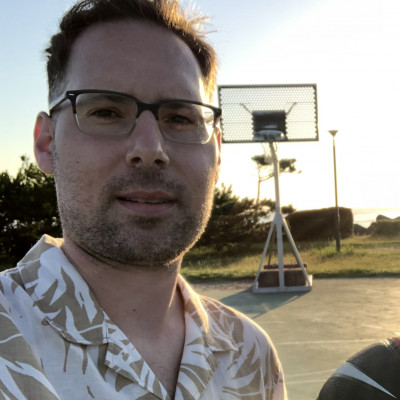Sessions / Mind, Brain, and Education
Cancelled Reappraising the value of freewriting from the perspective of creativity studies #2891
The future impact of artificial intelligence on the composition classroom can already be glimpsed darkly in a suite of pandemic-era apps. With a swipe of their smartphone, students will increasingly outsource much of the mechanics of writing — clarity, coherence, usage, etc. — to these and related artificial intelligences. In light of these advances, I believe that the future of composition instruction across disciplines and ability levels lies in renewing our focus on the art of invention — that is, the act of writing understood as one of many domain general processes or procedures that enable a person to generate new, useful and surprising ideas. To further ground my claim, I will open a substantive dialogue with the epistemologically adjacent field of creativity studies, thereby breaking with a rather unfortunate historical trend in cognitivist approaches to composition as they relate to discovery. Specifically, I argue that Dean Keith Simonton's combinatorial theory of creativity is isomorphic with Peter Elbow's otherwise seemingly idiosyncratic freewriting methodology. In this sense, Elbow's approach can be viewed as reproducing the two-step universal process responsible for creativity in the arts and sciences, but at a level of granularity that is potentially unmatched by other methods.
Sleep habits of university students in Tokyo: Comparison of online vs. on campus #2725
This presentation will describe a pilot study looking at sleep habits among 83 first-year (second-semester) university students in Tokyo. During the fall semester of 2021, a unique opportunity arose to investigate the difference in sleep habits between students studying online via Zoom and on-campus in a face-to-face setting. The first month of classes was conducted online due to Covid before returning to the campus classroom. Students completed a daily questionnaire (just before going to bed and immediately upon waking) over a one-week period during online classes and another week-long period upon returning to campus. The same students were studied enabling a direct comparison. The primary focus was was to discover differences in the following: 1) the difference in hours slept, 2) the effects of caffeine, electronics, and exercise before sleeping, and 3) variables that play a role in positively or negatively affecting sleep among the participants. The study found on-campus learning led to reduced time sleeping, but commuting time played less of a role than expected. Other activities such as part-time jobs at night, smartphone activity, and student clubs consistently showed negative effects on sleep.
Correlating heart rate response with state feelings in a language classroom #2743
The aim of this study was to assess moment-to-moment occurrences of Japanese language learning (LL) anxiety symptoms in a university classroom by evaluating the relationship between self-reported affective states and heart rate measures. Over a period of three sessions, undergraduate Japanese language students (5 males and 5 females, mean age = 19.7 years, SD = .95) wore Fitbit smart watches and performed a class-observed dialog while seated at their desks. Students were also asked how they were feeling at three intervals within each session: class start, pre-performance, and post-performance. Self-reported feelings of distress and embarrassment were found to have significant relationships with HR response. The current study advances the field by providing a new data collection system which effectively assesses affective states in a 'live' classroom setting. Real-time assessment of affective states can assist in identifying when shifts in affect occur, with the potential for these shifts to inform LL interventions.
Laughter Meditation to Reduce Students’ Anxiety, Burnout, and Stress #2733
The ongoing COVID-19 pandemic-related anxiety, burnout, and stress (ABS), and fear have affected the quality of life of many people globally. Studies have shown that the number of individuals affected by depression has risen during the COVID-19 pandemic (Bueno, 2021). Such pandemic-related ABS, and fear of the unknown are likely to progress into mental related-illnesses if no intervention is carried out. Here, the positive effects of non-pharmacologic interventions such as massage, music, and yoga therapy have begun to be recognized (Lewis et al., 2018). In a similar vein, laughter therapy has also been discovered as an avenue to reduce ABS, due to its ability to change mood states instantaneously, lower blood pressure, boost the immune systems, increase concentration, and self-confidence (Subramoney, 2020). In this study, laughter meditation intervention (LMI), a technique which involves mimicking the act of laughing, was trialed with 70 volunteer participants to explore its potential to improve their positive psychological status. After two sessions, positive emotions, and reductions of ABS in the classroom were found. This result suggests that LMI is effective in ameliorating students’ wellbeing and encouraging them to be more resilient and positive about the unknown effects they face in a post pandemic era.
Teaching and Learning about the Brain #2651
The Brain SIG’s monthly Think Tank publication has become the focus of our efforts to learn and teach others about the brain. By drawing on the expertise of SIG members in Japan and authors around the world, we are able to address a wide range of topics related to neuroscience, psychology, and language learning. In this forum editors and authors from the MindBrainEd Think Tanks will give short, concurrent presentations related to some of the topics we have covered over the last year, then lead small group discussions to explore these topics in more depth and relate them to your teaching practices. Join us and find out how our Think Tanks help us make brain research meaningful and engaging for educators.









